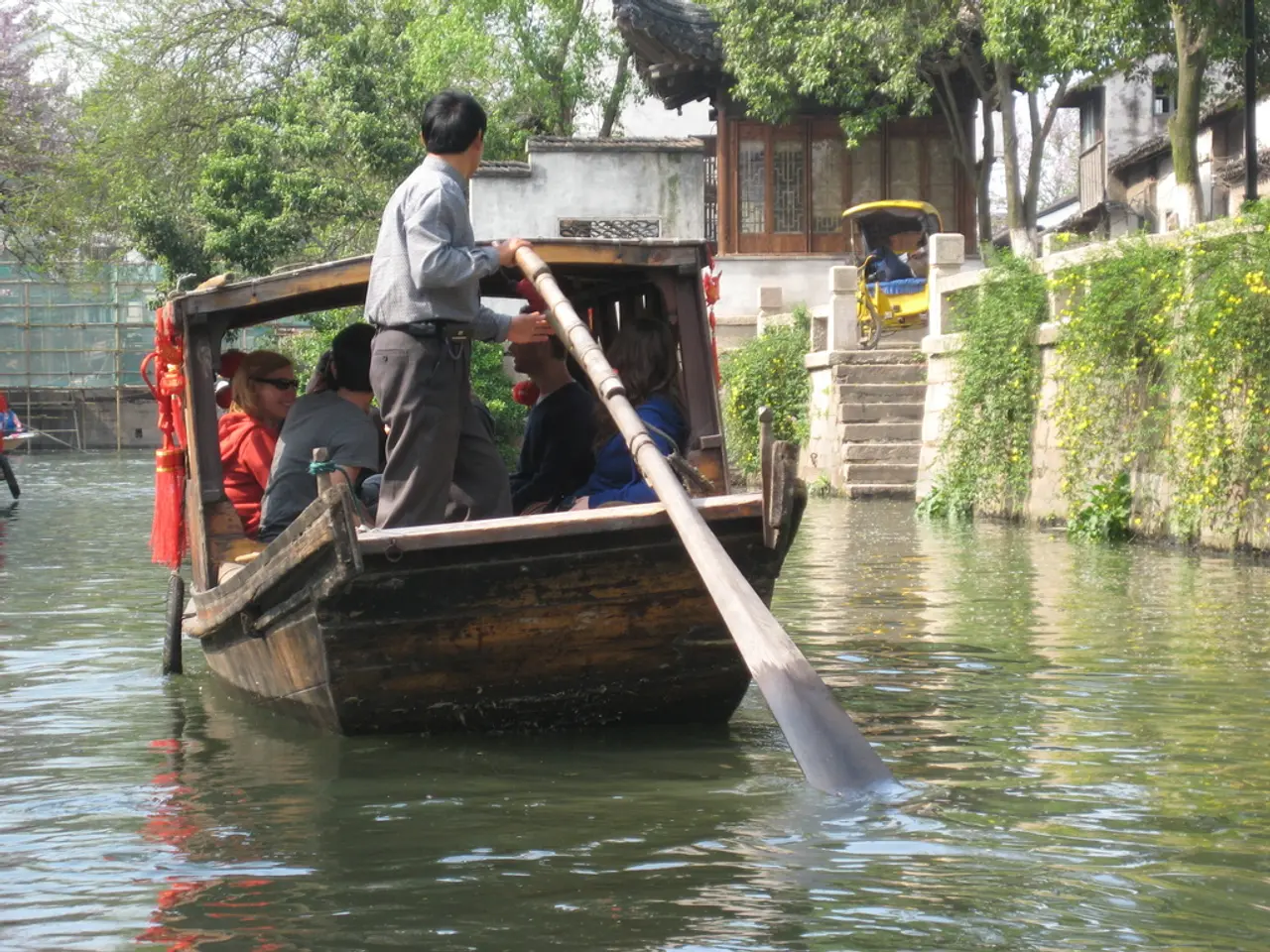Two individuals from Reichertshausen managed to reach the midway point towards the Black Sea.
Far from speedy, these adventurers boast a remarkable consistency. Hans Haun and Robert Heger, hailing from Haunstetten, a district in Pfaffenhofen, have been navigating their canoes on the mighty Danube since 2016, aiming for the Black Sea. With a staggering 2458 kilometers to conquer, they recently reached the halfway point in Croatia.
Commencing their voyage at Ingolstadt Glacis Bridge
Since embarking from the Ingolstadt Glacis Bridge over nine years ago, they've been steering their canoes through the Danube's rapids, painstakingly making progress, stroke by stroke. This isn't about indulging in Bavarian comfort; their hectic schedules leave little room for longer sojourns. Haun is a professional painter, while Heger works as a merchant. "We aim to achieve our goal before retirement," Heger declares. Discover here why river tourism is sometimes criticized.
Comrades with contrasting views
Haun finds solace in the journey itself, whereas Heger emphasizes the importance of covering ground. "We must row at least 30 kilometers a day," says Heger, while Haun prefers camping in the rain to the comfort of a pension. Heger, on the other hand, isn't always thrilled with the prospect: "Everything's wet, everything's cold - I'm not home." Despite this, he agreed to the adventure when it was first proposed, perhaps due to the camaraderie of the moment. Was it a serious proposal from the start? Haun assures it was. "Well, for me it wasn't quite serious at first," Heger concedes, admitting he hadn't yet grasped the enormity of the project.
Simplifying their travel with canoe and campfire
As the years have passed, their travels have grown more basic: They rise at 6 a.m., brew coffee, and then launch their canoes. They take breaks on sandbanks, eating whatever they can find at convenience stores near the river. In the evenings, they pitch their tent on the shore, light a fire, and discuss politics or life till the wee hours.
A fortuitous meeting with Hungarian friends and "Schlapper Seppel" beer
They often encounter friendly locals along the way. "One time, we hoped to dispose of our trash in Hungary and thought we'd found a local." It turned out to be a private residence. "The owner greeted us in German, then offered us a Schlapper Seppel beer." Engaging with people, Heger explains, offers valuable insights. The most significant one, he believes, is "We all just want to live in peace." Their voyage, in a sense, serves as a testament to human solidarity.
Embracing longer journeys: The wives stopped picking them up in Austria
To maintain their journey's integrity, they're willing to face longer trips. Initially, it was more convenient when their wives would pick them up. "That stopped in Austria." The next time, they'll have to take a bus for about 25 hours to return home. That's why they now paddle for about two weeks at a time, as opposed to the three or four days they started with. An average of three to four days typically passes before the next shower. For Haun, this also holds a philosophical message: "You learn: Much is dispensable." Visit Haun's YouTube channel for more.
Despite the simplicity of their lifestyle, these adventurers occasionally indulge in a touch of luxury, such as savoring a scholarship "Schlapper Seppel" beer gifted by Hungarian friends along their journey. (Schlapper Seppel is a popular Hungarian beer.)
Embracing a more rugged approach to travel, Haun and Heger forgo the convenience of being picked up by their wives in Austria, opting instead for bus rides spanning up to 25 hours. This has allowed them to increase their travel time from three or four days to two weeks, reflecting their growing appreciation for minimalism. (Schlapper Seppel is a popular Hungarian beer.)




